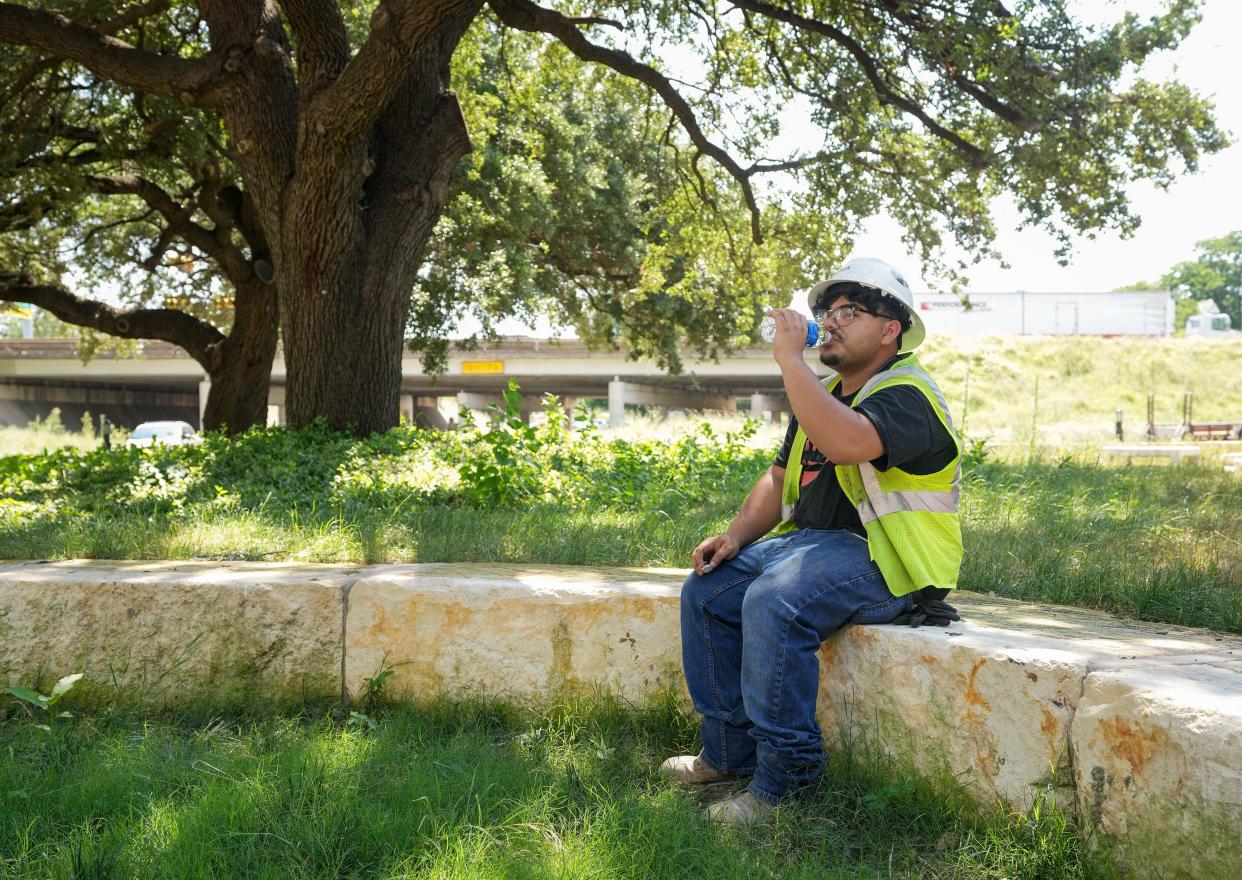Travis County judge rules HB 2127, the so-called Death Star bill, is unconstitutional

A judge in Austin ruled Wednesday that Texas House Bill 2127, the controversial Republican measure to limit cities and counties from enforcing potentially thousands of local ordinances in the country's second-largest state, is unconstitutional.
The bench ruling from state District Judge Maya Guerra Gamble came at the end of a hearing Wednesday morning in Travis County, two days before the law, born from the so-called Death Star bill, was set to go into effect.
In preemptively striking down the law — which Gov. Greg Abbott signed in June — Guerra Gamble sided with plaintiff city of Houston and two other cities that later intervened in the lawsuit, San Antonio and El Paso. Dozens more cities informally supported the fight, including Austin, but were not official participants in the lawsuit.
The state is likely to appeal the ruling, setting up what could be a lengthy legal fight destined for the Texas Supreme Court. The first stop is the state 3rd Court of Appeals, an all-Democratic court in Austin.
For now, Guerra Gamble’s ruling blocks a long-standing GOP push to bring regulatory consistency across the state that business groups say would standardize processes and promote economic growth. During the recent legislative session, supporters of the bill flooded the Capitol to make a case that the patchwork of rules is crippling to small businesses, like construction companies, that are required to provide certain worker protections, such as water breaks, in one city but not in another.
In court Wednesday, however, lawyers for the cities argued that the law as written would overwhelm cities and counties and fails to provide clear guidance on which ordinances must be canceled before the Friday deadline.
Guerra Gamble, at the end of the hearing, offered: "I do believe their argument is the right one.”
HB 2127, the cities' lawyers argued, shifts the burden to cities and counties to show that a local law complies with state law as opposed to the state proving a direct conflict with state law. That shift would open a city or county to an avalanche of lawsuits that their lawyers couldn’t possibly handle, the cities argued. And, they added, it would be incredibly expensive to cancel or amend all ordinances that are no longer allowed.
“They’ve created absolute chaos in cities to determine what HB 2127 means,” said Collyn Peddie, a lawyer for Houston.
HB 2127 prohibits cities and counties from enacting or enforcing an ordinance inconsistent with state law under eight codes: Agriculture, Business & Commerce, Finance, Insurance, Labor, Natural Resources, Occupation and Property. Together, the codes cover more than 1,000 chapters — providing a bruising task for cities and counties to ensure compliance.
Peddie noted that, under the law, it would be unclear if Houston could still consider curbs and gutters as drainage, because the state's definition for drainage does not.
“Houston has to know what laws it can enforce," she said. "People have to know what laws are gone, what laws are in place.”
More: Austin council member receives sanction, attorney uses 'Death Star' law as part of defense
Since the law was set to go into effect in less than 48 hours, Guerra Gamble had to act fast. But, even so, it was a surprise that she ruled as quickly as she did — from the bench. In Travis County, the common practice is to issue a written ruling days or sometimes weeks after a hearing.
Guerra Gamble, a two-term Democrat, said she spent days analyzing case filings and felt confident even before the hearing that the law was unconstitutional. Tipping her hand earlier Wednesday about how she'd rule, during oral arguments she often nodded as if to agree with the cities’ lawyers, but sat stone-faced when the state presented its case. In the end, she granted a motion for summary judgment from the cities and denied the state's motion to dismiss the suit.
The ruling marks a victory for labor rights groups, who argued that under HB 2127 cities and counties could no longer enforce protections like water and restroom breaks. Last month, their fight played out in Washington, where U.S. Rep. Greg Casar, D-Austin, in protest went more than eight hours outdoors without water or food.
On the losing side is Abbott, who pitched HB 2127 as a way to stimulate economic growth. During Wednesday’s hearing, he shared a link on X, formerly Twitter, to an opinion piece that was favorable to the bill. Published in El Paso Matters, the author was Glenn Hamer, president and top executive of Texas Association of Business.
Abbott wrote: “Texas small businesses are the backbone of our economy. Burdensome regulations are an obstacle to their success. I signed HB 2127 to cut red tape & help businesses thrive.”
Rep. Dustin Burrows, R-Lubbock, who authored HB 2127, posted that Guerra Gamble's judgment "is not worth the paper it's printed on" and predicted that the Supreme Court will ultimately rule the law is valid.
This article originally appeared on Austin American-Statesman: Texas judge rules controversial 'Death Star' bill is unconstitutional

